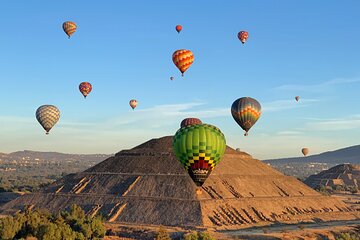Hanukkah: The Joy of Celebrating Jewish Holidays in Northern Mexico

Growing up, winter break was always my favorite, for its perfect mix of sweater weather and hot chocolate; tamales and latkes; Santa Claus and Hanukkah candles. Back then, I was the only Jewish kid in my school—actually, in my whole town—and celebrated both Christmas and Hanukkah. But every year I’d get the same questions from my friends and classmates: “So, is Hanukkah just like Jewish Christmas?” And every year, my answer was the same: “no, Hanukkah is not Jewish Christmas.”
Hanukkah is actually one of the few Jewish holidays not mentioned in the Hebrew Bible. In fact, the story of Hanukkah is the story of the culmination of the Maccabean Revolt. Every year, we celebrate the fact that the Maccabees, a small group of Jewish soldiers led by Judah Maccabee, liberated Judea (what we know as Israel today) from the Seleucid Empire. It was a 3-year revolt that ended with the cleaning and rededication of the Temple in Jerusalem the Seleucids had attempted to destroy.
After this revolt, the miracle of light occurred. While rebuilding their homeland, the Maccabees and their followers entered the Temple, and found just enough oil to light the Temple’s menorah for one day. Even though they knew it would take a week to produce new oil supplies, they lit the menorah anyway. But a miracle occurred: oil continued to flow for eight whole days. This is what we came to know as the Miracle of Light.

Every year, on the 25th day of the 9th month of the Hebrew year (yes, we have our own calendar) my family and I light a huge menorah on our front lawn. While you can usually see Christmas tree lights peeking from my neighbors’ windows, my home is the only one with both: a menorah and a Christmas tree. We're an interfaith family that has found the perfect balance when it comes to celebrating holidays and finding common ground when our beliefs are different—sometimes even opposing.
Growing up as a Jew in Mexico, especially in a town where I was the only Jewish kid, meant I stood out by default. Mexican culture and traditions are heavily rooted in Catholicism, which permeated pretty much every aspect of my social and academic life. I attended a secular elementary and middle school, but there were still church services held for any important event. Then I switched to a Catholic high school, where I first experienced the very specific brand of antisemitism rooted in ignorance and the false belief that “there are no Jews in Mexico.” (Spoiler alert: there are Jews in Mexico, and we’ve been around for some 500 years.)

Being the only Jewish kid wasn’t all that bad, though. I often had the opportunity to introduce my friends and classmates to Jewish culture and traditions. I’d bake enough challah to share, invite them over for our Passover seders, and let them light my Hanukkah menorah whenever they spent the night during winter break. I’ve had the chance to discuss the "correct" spelling of the word "Hanukkah" more times than I can remember. (They're all correct, by the way—personally, I use "Hanukkah" in English and "Janucá" in Spanish.) I’ll also never get tired of rewatching the Rugrats Chanukkah special with my (non-Jewish) cousins, and I love being able to teach my 11-year-old niece how to play with a dreidl while singing the Dreidl Song enough times that it ends up stuck in my head for weeks.

You'd think that after 30 years of the same questions and conversations I’d eventually get annoyed by it all, but in reality it makes me proud. I love getting to talk about Jewish history and holidays, and being able to share all these things that are so special and such a fundamental part of who I am with people. The way I see it, I’m helping them understand the world from a different perspective, and just like there’s more than one "correct" way of celebrating—and spelling—Hanukkah, there are many ways to be Jewish. They're all valid.
But when someone asks me what Hanukkah is and why we light the menorah, I always end up coming back to the wise words of Uncle Schlomo, from that Rugrats episode: “A menorah is like the night light of our people. In times of darkness, it shines on the world, reminding us not to be afraid to be different, but to be proud of who we are.”
Explore Mexico
Keep reading






